Sanford Berman is a librarian. He is known for radicalism, promoting alternative viewpoints in librarianship, and acting as a proactive information conduit to other librarians around the world. His vehicles of influence include public speaking, voluminous correspondence, and unsolicited "care packages" delivered via the U.S. Postal Service. Will Manley, columnist for the American Library Association (ALA) publication, American Libraries, has praised Berman: "He makes you proud to be a librarian."
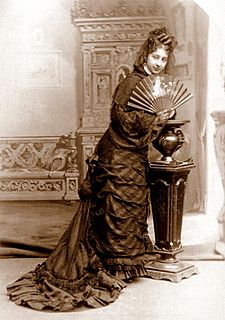
Zelia Maria Magdalena Nuttall was an American archaeologist and anthropologist specialised in pre-Aztec Mexican cultures and pre-Columbian manuscripts. She discovered two forgotten manuscripts of this type in private collections, one of them being the Codex Zouche-Nuttall. She was one of the first to identify and recognise artefacts dating back to the pre-Aztec period.
The Library of Congress Subject Headings (LCSH) comprise a thesaurus of subject headings, maintained by the United States Library of Congress, for use in bibliographic records. LC Subject Headings are an integral part of bibliographic control, which is the function by which libraries collect, organize, and disseminate documents. It was first published in 1898, a year after the publication of Library of Congress Classification (1897). The last print edition was published in 2016. Access to the continuously revised vocabulary is now available via subscription and free services.

Frederic Ward Putnam was an American anthropologist and biologist.

In library and information science, cataloging (US) or cataloguing (UK) is the process of creating metadata representing information resources, such as books, sound recordings, moving images, etc. Cataloging provides information such as author's names, titles, and subject terms that describe resources, typically through the creation of bibliographic records. The records serve as surrogates for the stored information resources. Since the 1970s these metadata are in machine-readable form and are indexed by information retrieval tools, such as bibliographic databases or search engines. While typically the cataloging process results in the production of library catalogs, it also produces other types of discovery tools for documents and collections.
Alfred Marston Tozzer was an American anthropologist, archaeologist, linguist, and educator. His principal area of interest was Mesoamerican, especially Maya, studies. He was the husband of Margaret Castle Tozzer and father of figure skating champion Joan Tozzer.

The Peabody Museum of Archaeology and Ethnology is a museum affiliated with Harvard University in Cambridge, Massachusetts. Founded in 1866, the Peabody Museum is one of the oldest and largest museums focusing on anthropological material, with particular focus on the ethnography and archaeology of the Americas. The museum is caretaker to over 1.2 million objects, some 900 feet (270 m) of documents, 2,000 maps and site plans, and approximately 500,000 photographs. The museum is located at Divinity Avenue on the Harvard University campus. The museum is one of the four Harvard Museums of Science and Culture open to the public.
In information retrieval, an index term is a term that captures the essence of the topic of a document. Index terms make up a controlled vocabulary for use in bibliographic records. They are an integral part of bibliographic control, which is the function by which libraries collect, organize and disseminate documents. They are used as keywords to retrieve documents in an information system, for instance, a catalog or a search engine. A popular form of keywords on the web are tags, which are directly visible and can be assigned by non-experts. Index terms can consist of a word, phrase, or alphanumerical term. They are created by analyzing the document either manually with subject indexing or automatically with automatic indexing or more sophisticated methods of keyword extraction. Index terms can either come from a controlled vocabulary or be freely assigned.
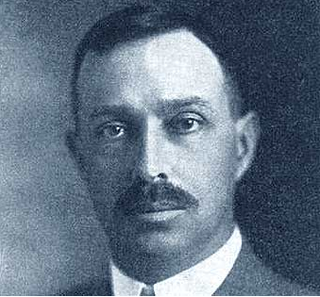
Roland Burrage Dixon was an American anthropologist.
Inspec is a major indexing database of scientific and technical literature, published by the Institution of Engineering and Technology (IET), and formerly by the Institution of Electrical Engineers (IEE), one of the IET's forerunners.
Anthropology, or Anthropologie in some languages, refers primarily to a science and arts. An Anthropologist practices anthropology. Anthropological is "having to do with anthropology." This word set may refer to:

Tozzer Library is Harvard Library's primary source for all subfields of anthropology and archaeology. With over 250,000 volumes, Tozzer is home to one of the largest and most comprehensive anthropology and archaeology collections worldwide. The anthropology collections cover a wide span of regions across the globe, while the archaeology collections also range worldwide but focus heavily on archaeology of the Americas.
The Robert Goldwater Library in the department of the Arts of Africa, Oceania, and the Americas, of The Metropolitan Museum of Art is a noncirculating research library dedicated to the documentation of visual arts of sub-Saharan Africa, the Pacific Islands, and Native and Precolumbian America. The library is open to adult researchers, including college and graduate students.
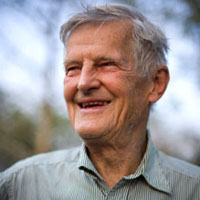
Ian James Alastair Graham OBE was a British Mayanist whose explorations of Maya ruins in the jungles of Mexico, Guatemala, and Belize helped establish the Corpus of Maya Hieroglyphic Inscriptions published by the Peabody Museum of Harvard University. Among his related works is a biography of an early predecessor, the 19th-century British Maya explorer Alfred Maudslay.
The Llista d'encapçalaments de matèria en català (LEMAC) is a Catalan language controlled vocabulary that includes subject headings – linguistic expression - used by cataloguers to represent the thematic content of documents – a concept, event, name, or title- and that allows users to make a search in a catalogue, bibliography or index. LEMAC is created and maintained by the Servei de Normalització Bibliogràfica of the National Library of Catalonia, and it is applied by librarians to the documents being catalogued, so that users can search items through access points other than authors, titles or publishers. Subject headings also allow users to retrieve headings together when the topic is the same and, at the same time, they show the topics covered in a given collection. LEMAC was developed following the spirit of the Llei 4/1993 del Sistema Bibliotecari de Catalunya in order to "gather in a same union catalogue the bibliographic references integrating the different library resources of the Sistema Bibliotecari de Catalunya".
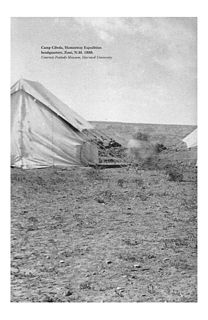
The Hemenway Southwestern Archaeological Expedition occurred between 1886 and 1894 in the American Southwest. Sponsored by Mary Tileston Hemenway, a wealthy widow and philanthropist, the expedition was initially led by Frank Hamilton Cushing, who was replaced in 1889 by Jesse Walter Fewkes. It was considered to be a major scientific archaeological expedition, notable for the discovery of the prehistoric Hohokam culture.
Faceted Application of Subject Terminology (FAST) is a general use controlled vocabulary based on the Library of Congress Subject Headings (LCSH). FAST is developed as a part of WorldCat by OCLC, Inc., with the goal of making subject cataloging less costly and easier to implement in online contexts. FAST headings separate topical data from non-topical data, such as information about a document's form, chronological coverage, or geographical coverage.

The George and Mary Foster Anthropology Library is one of the subject specialty libraries at University of California, Berkeley, and is one of only three anthropology libraries at American research universities. The other two are at Harvard and the University of Pennsylvania. All three universities have specialized anthropology libraries and museums in support of their anthropology departments.
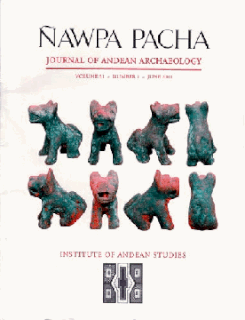
Ñawpa Pacha, Journal of Andean Archaeology is a biannual peer-reviewed academic journal published by Taylor & Francis on behalf of the Institute of Andean Studies. Ñawpa Pacha means "Antiquity" in the Quechua language. It was established by John Howland Rowe in 1963.
Archaeology, Ethnology & Anthropology of Eurasia is a bilingual peer-reviewed academic journal covering anthropological and archaeological studies on Eurasia. It was established in 2000 by the Institute of Archaeology and Ethnography of Siberian Branch of the Russian Academy of Sciences. Since January 2008, the institute publishes it in association with Elsevier.









